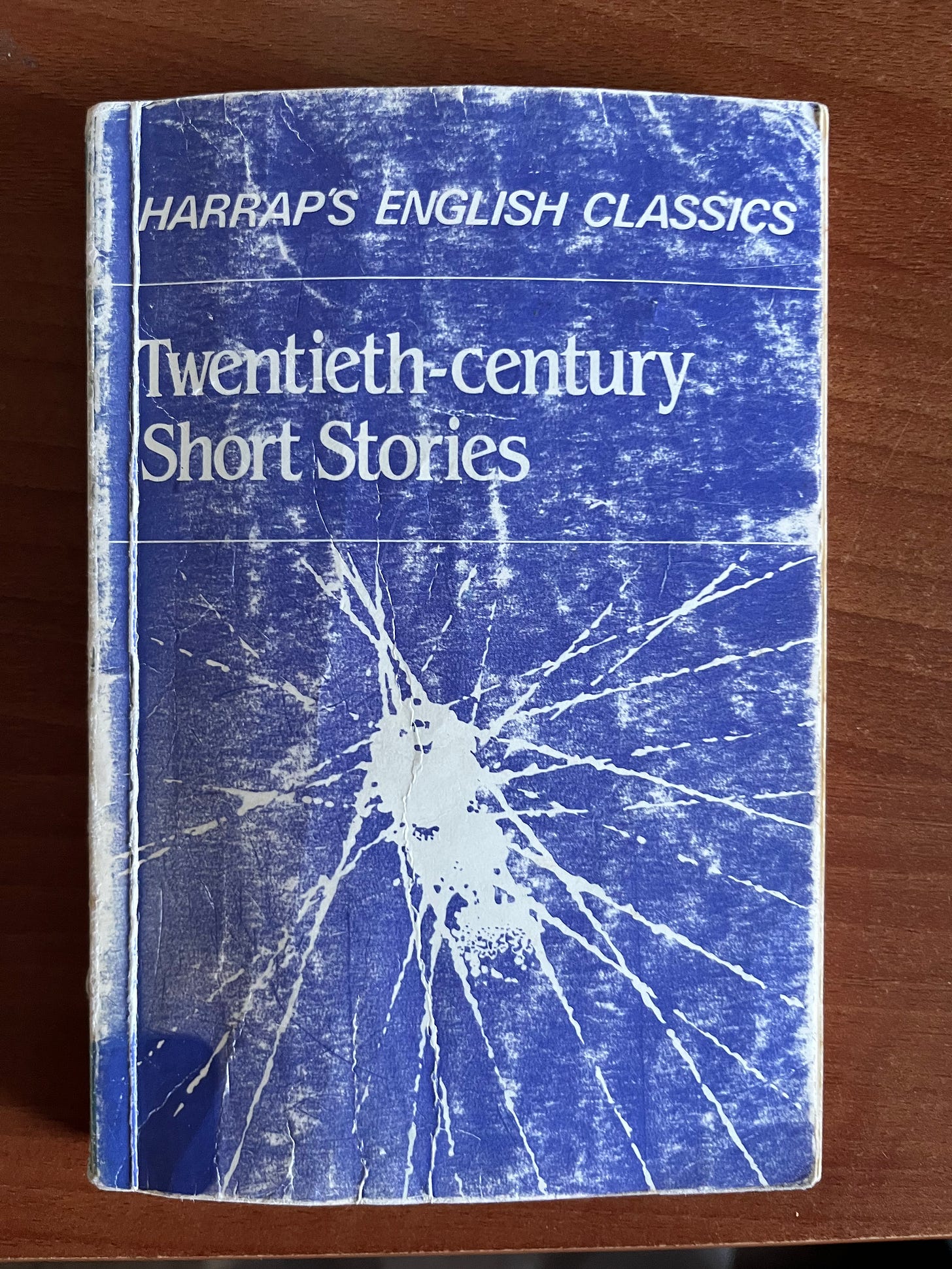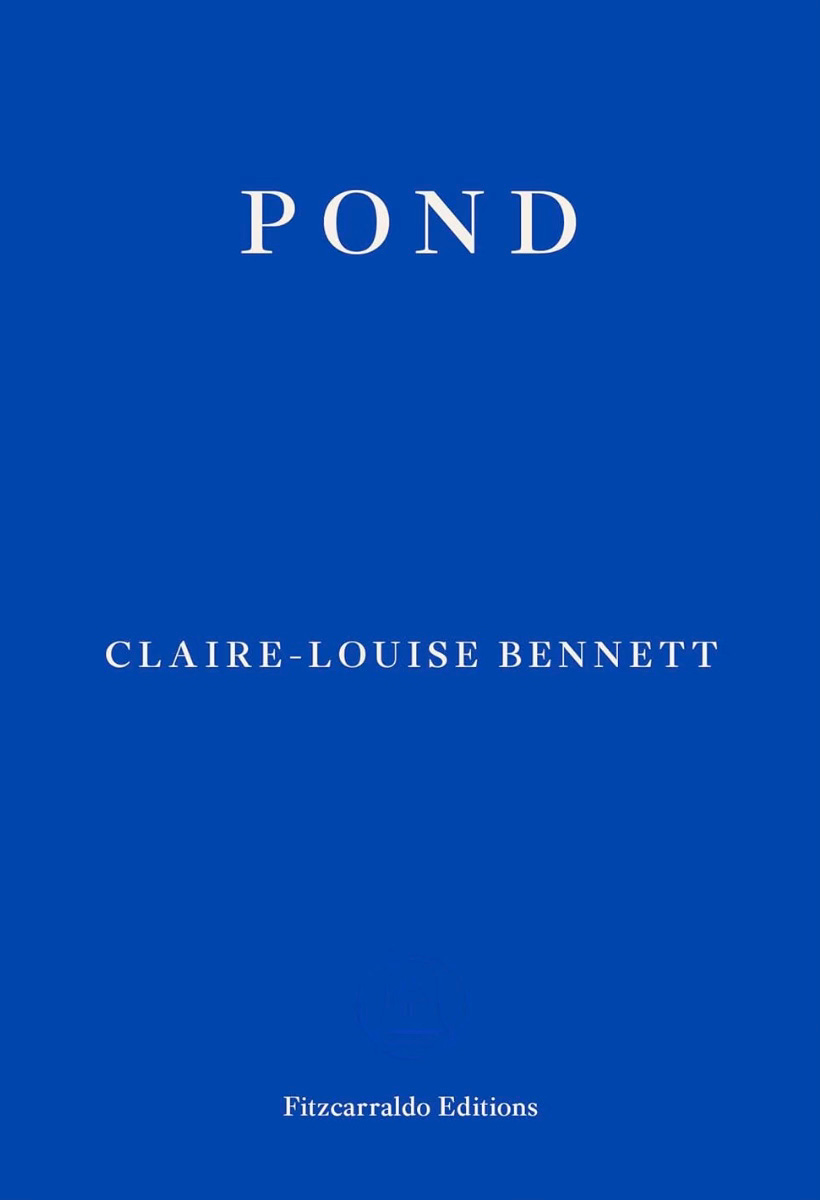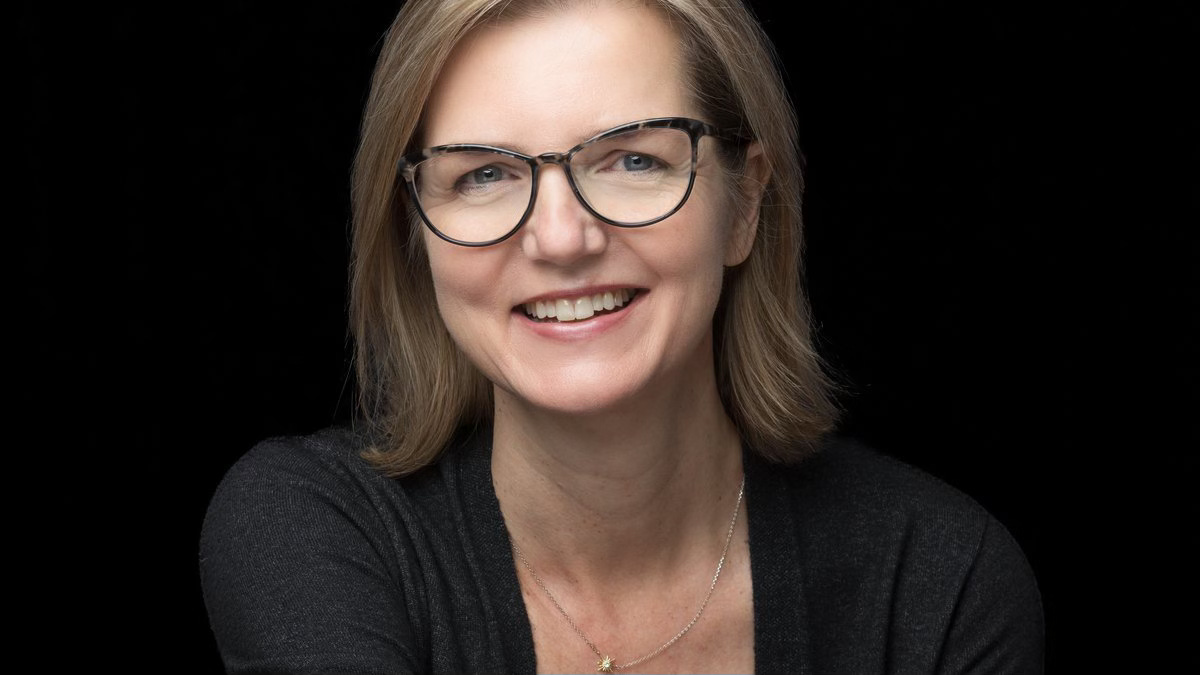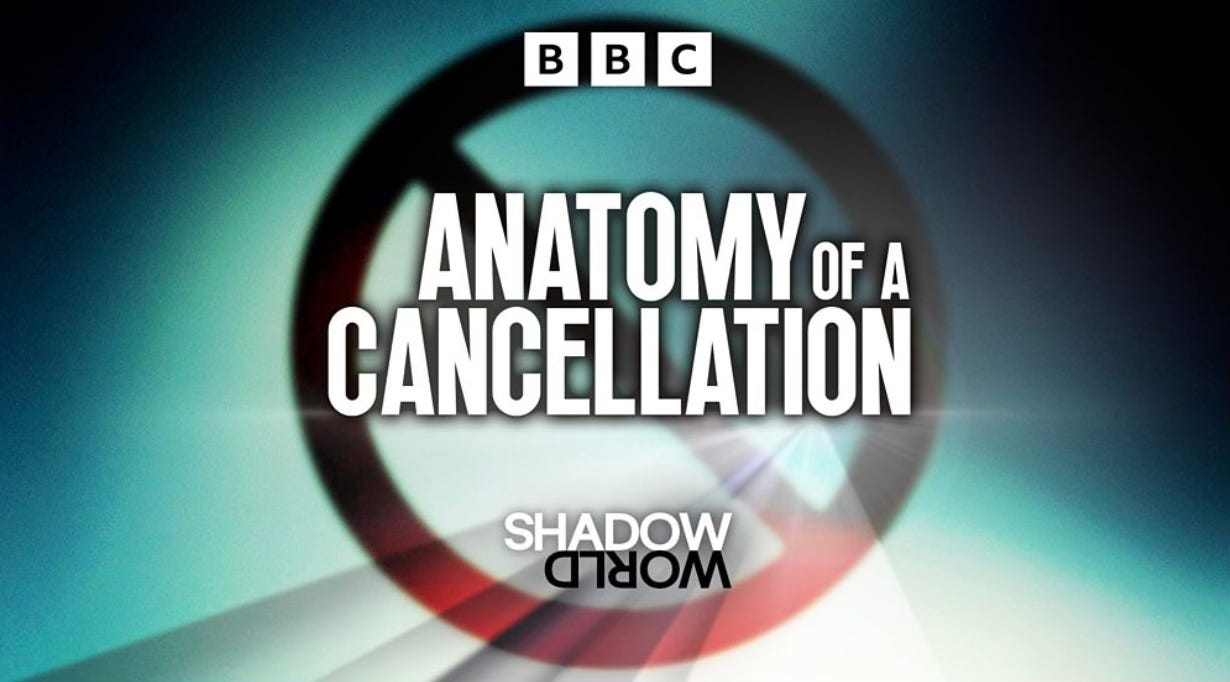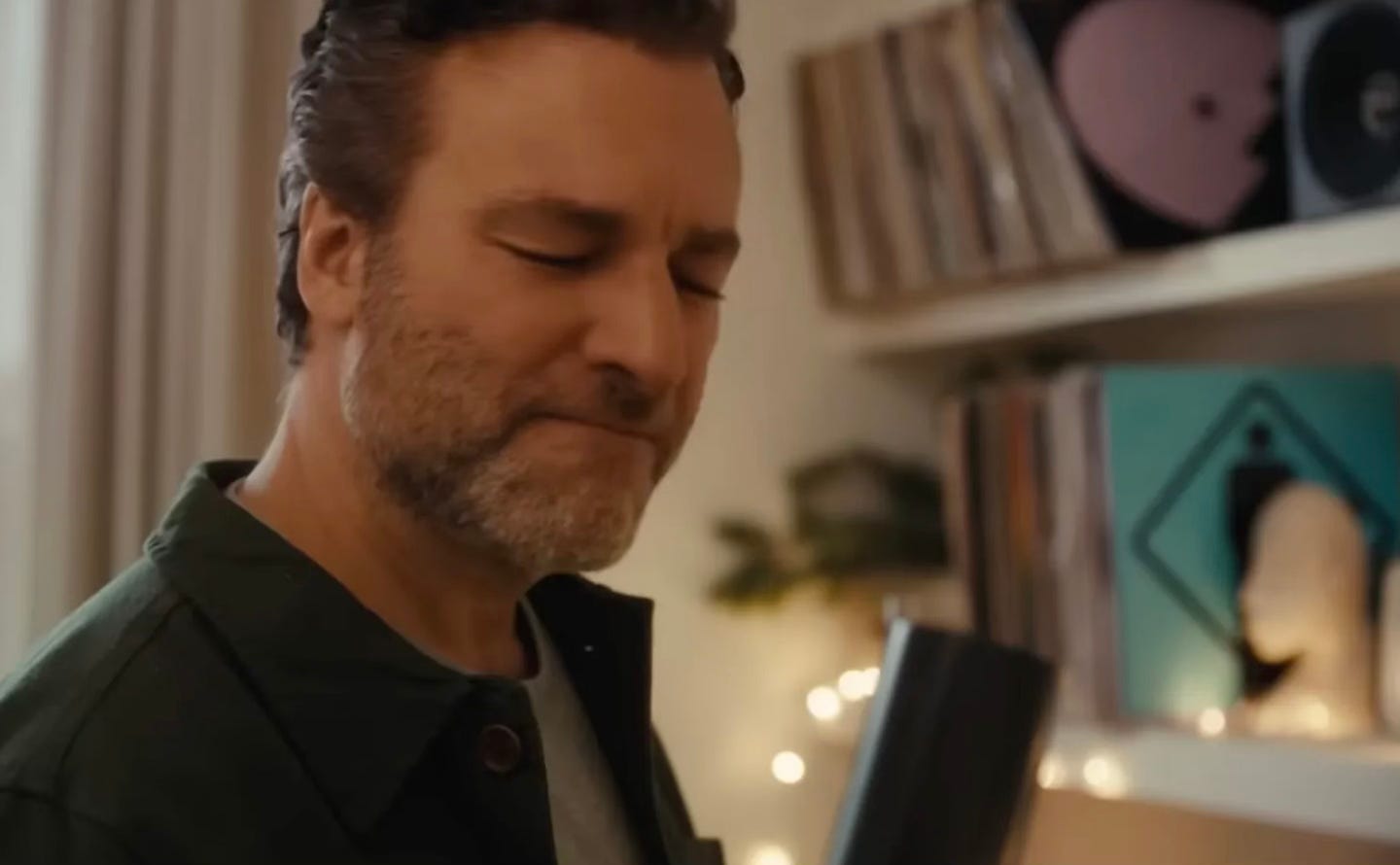195: Mine own, and not mine own
A Midsummer Night's Dream, E.M. Forster, Claire-Louise Bennett, Magdalene Laundries, Jennifer Roberts, Gerard Manley Hopkins, Kate Clanchy, Audrey Watters and more.
Directing plays is a true joy of school life. Directing Shakespeare in school is very special. More below.
Next week, another Occasional for paid subscribers. In two weeks the final standard Fortnightly of 2025, followed a week later by my annual Books of the Year post, in time for your Christmas shopping.
Directing Shakespeare
in a school has been a joy for years. This time, in midwinter, it was A Midsummer Night’s Dream last weekend, and I wrote about the experience of conceiving it and being a co-director.
Testimony
is a documentary, released yesterday, about the advocacy campaign of the group Justice for Magdalenes. Last year the legal expert Maeve O’Rourke, who features in the film, came to my school to talk about these issues. Most powerful is the series of women who talk about their awful experiences in institutions: your heart will be broken open.
I went yesterday afternoon, and had a private viewing (ie, no other customers appeared). Thoughts on the film.
‘The Machine Stops’
is an eerily prescient short story about our technology-suffused world, written in 1909 by the author of A Room with a View and A Passage to India. I reread it after coming across my 1980s teaching copy of Twentieth Century Short Stories.
We created the Machine, to do our will, but we cannot make it do our will now. It has robbed us of the sense of space and of the sense of touch, it has blurred every human relation and narrowed down love to a carnal act, it has paralysed our bodies and our wills, and now it compels us to worship it.
My comments (including a link to the story).
Pond
was Claire-Louise Bennett’s first book, and for some reason it has taken me 10 years to get to it (it’s been sitting on the unread shelf in its lovely Fitzcarraldo livery for quite a while).
A connected series of stories (is ‘pieces’ better?), it was unexpectedly funny and self-mocking (of the narrator, a woman who is renting in the Irish countryside). That narrator seems to freewheel obsessively, returning repeatedly to ideas and objects, using language to disguise as much as to express. An example is ‘Control Knobs’, which starts:
When I moved in here all three control knobs on the cooker were intact and working just fine.
Professor Jennifer Roberts
is someone I’ve often cited here, including in this post about King Lear and Caravaggio’s masterpiece ‘The Taking of Christ’. She tells her Harvard art history students to spend three hours in front of a painting, without distraction, and to take notes on what they see. She is making a point about ‘the fracking of attention’, concentrating and the deceleration of learning in a very distracted age, an all-too current issue for teachers.
On Front Row recently she discussed the idea of ‘slow looking’ with Tom Sutcliffe, from 19:59.
Podcast of the Week
is BBC Radio’s series Anatomy of a Cancellation, presented by Katie Razzell, which revisits one of the more depressing viral online conflicts of recent years, the storm which gathered around Kate Clanchy and her book Some Kids I Taught and What They Taught Me. Razzell does a good job of unpicking the origins of what happened, and its distressing aftermath.
Here is one of the original reviews from 2019, a balanced analysis by Lara Siegel which praises the book but calmly notes possible issues. That kind of reasonable response was blown away by the hysteria of 2021. As has been stated by many people, it’s hard not to think of Salem in 1692.
Teaching and Learning Things:
Thanks to the 300 teachers who attended my webinar on revising Macbeth on Tuesday, and for the generous feedback. The slides and the resources/links.
As a school leader, this by Vic Goddard hits nails on heads: ‘Balancing the Headship Tightrope: When Your Family Needs You Too’:
I won’t pretend any of this is easy. Right now, I’m struggling to get it right. Supporting my mum, honouring the responsibility of leading schools I care deeply about, and managing my own wellbeing has stretched me more than I ever expected. Some days I look in the mirror and see someone older, more tired, putting on the weight that I worked hard to lose, and it knocks me more than I’d like to admit. Leaders aren’t infallible. We’re not immune to ageing or stress or self-doubt. And when you’re the person who’s supposed to be supporting others, it can feel strange or wrong, even when support needs to flow towards you.
Conor Murphy on the unintended consequences of the Irish state-run textbook scheme in free schools, and how essential the physical object is:
Taking notes in a book, doodling, is taking ownership of that book. The tactile experience of writing in a permanent pen, or a tentative pencil, speaks to us all; it tells us that we and the book are talking to each other. We’re having a conversation with the author. A conversation that, if we were to take the book home, could go on for generations.
Et Cetera
How to write: Audrey Watters with ‘AI Grief Observed’:
I think it matters that as we have lost faith in institutions over the course of the past few decades - in the church, in the media, in schools, in science, in medicine (particularly in public health and in vaccines) - that we are now promised an oracle that can deliver instant and easy answers. I think it matters that AI - so utterly opaque in its algorithmic predictions and decision-making -- is the ultimate unaccountability machine.
The Backlisted podcast team just discussed Rachel Cusk’s Outline trilogy, which I have often mentioned here (full disclosure: some people really dislike Cusk). Also included: Deborah Levy’s ‘living autobiography’, which I loved.
on Gerard Manley Hopkins’s poem ‘As Kingfishers Catch Fire’, which I have often taught: here is my piece on teaching Hopkins:
No subject was too small for Hopkins’s poetry. In fact, it’s almost as if the smaller the thing, the better. For it was in this microscopic, razor-sharp attention to the details of things, where Hopkins found “the power of particularity,” which could “change a person forever.”
Last year I wrote about Nicholas Olsberg’s superb book on the architect William Butterfield, The Masterbuilder (I know one of his buildings extremely well). Now the book has been shortlisted for the Walpole Society’s Berger Prize. Here is his interview with the British Art Matters podcast.
An entertaining ‘99% tongue-in-cheek semiotic analysis of the John Lewis Christmas ad’ this year by Nick Asbury:
For now, ignore the dad, who is in the grip of a deep depression, and look at the record sleeves behind him. On the top shelf, elevated in the hierarchy, is the symbol of the feminine: a soft pink, circular form. Immediately beneath it is the symbol of the masculine: a teal blue, square form. These contrasting motifs will recur throughout the ad: blue vs pink, square vs round. In this particular shot, the square is tilted to become a warning graphic, containing the simplified figure, which is a nod towards toxic masculinity.




